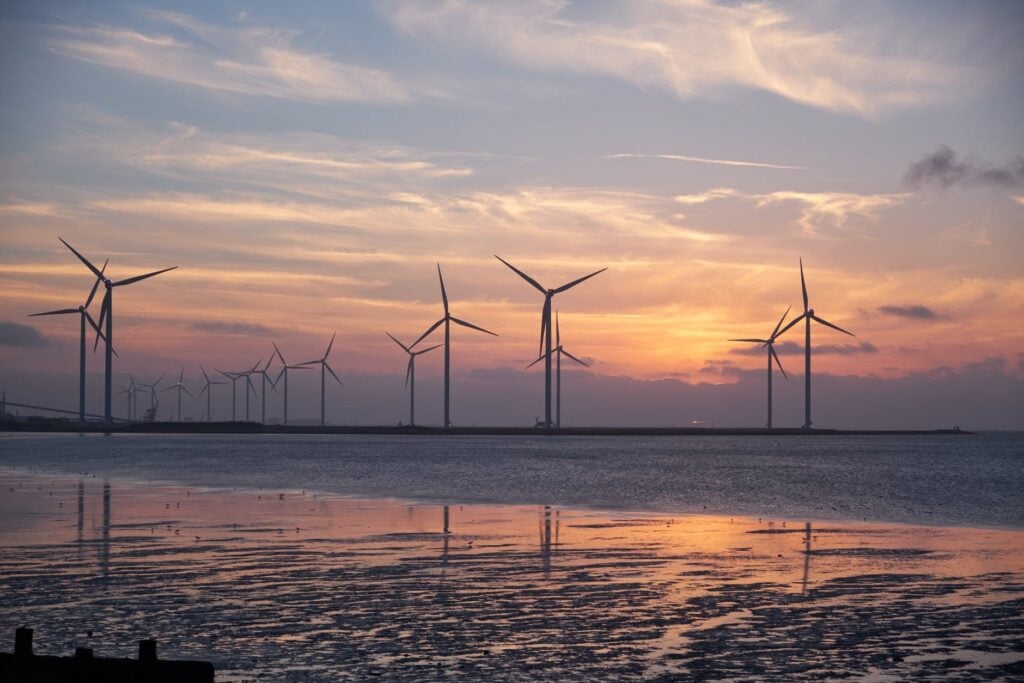The UK has once again moved up a spot in EY’s Renewable Energy Country Attractiveness Index (RECAI), securing the fourth spot in the rankings.
This upwards trajectory was supported by the Crown Estate’s seabed leasing Round 4, which concluded in February having granted developers the rights to just under 8GW of new offshore wind capacity across six projects. It drew record prices and unprecedented interest, noted EY, from both incumbents and newcomers.
In previous years, the UK has been able to rise through the ranks due to its strong offshore wind commitment, moving from eighth in May 2019.
Additionally, the consultancy pointed to the consent given by the UK government for the largest battery-storage project in the country. The 320MW site is being developed at DP Word London Gateway on the Thames Estuary in Essex by InterGen. It gained planning consent in November 2020, with construction expected to get underway in 2022 before the battery technology, which is being provided by Fluence, becomes operational in 2024.
Finally, the £92 million pledged by the UK government helped boost the country up the rankings of the top 40 countries.
The UK had a total RECAI score of 65, with its strong offshore wind score of 61.9 particularly boosting it. It scored 57.5 for onshore wind, 46.9 for solar PV and 56.8 for biomass.
Once again the US topped the list with a score of 70.7 – which was expected under President Biden, with his moves to rejoin the Paris Accord and new decarbonisation targets bolstering it – followed again by China Mainland with a score of 68.7. India meanwhile moved up a place into third position, with a score of 66.2 in what is the 57th biannual RECAI ranking.
It found that in 2020 global renewable energy capacity investments grew by 2%, up to US$303.5 billion. This was the second-highest annual figure despite the impact of COVID-19, but EY estimates that if the world is to reach net zero, a further US$5.2 trillion of investment is required.
“The Index highlights the extent to which the COVID-19 pandemic has increased global awareness on the urgent environmental challenges we’re facing today,” said Carmine Di Sibio, EY Global chairman and CEO.
“Convening moments like COP26 and MWC Barcelona present a collaborative platform to drive critical conversations around national and business net zero commitments.
“No single country or organisation can do it alone. We need collaboration across industry ecosystems, geographies and governments, harnessing the power of technology to accelerate the world’s transformation to a more sustainable future.”





